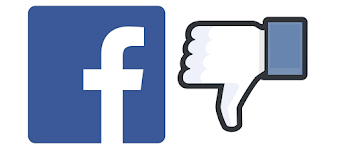A Brief History:
Facebook was originally founded by Mark Zuckerberg in 2003, while he was a student at Harvard University. Originally, Facebook was created as a platform for Zuckerberg and his friends to rate the attractiveness of other students at the university. This rating as a form of flirtation led to the creation of the "poke" function on Facebook.
Soon after its creation, Facebook grew quickly. It first spread to other students at Harvard, then other universities, and eventually all over. Zuckerberg was surprised by Facebook's success because he thought the frenzy would blow over and not last.
When Facebook was first launched, it was originally called "TheFacebook" and only those with a university email address could access it. Its initial features included sending messages or invites, or posting photos. Additionally, students were able to give personal details, such as their relationship status, where they were from, or their education. They could also block, friend, or unfriend each other.
A few years later (in 2005), the platforms expanded to allow high school students to create accounts, and its named is changed to "Facebook," dropping its definite article. This was followed by Facebook allowing anyone to join as long as they were over 13 years old and had an email address. Facebook also updated, creating a "newsfeed" feature, which allowed users to see updates of their friends profile in immediately, as well as a "status update" for users to post their thoughts, and a blogging feature called "Notes."
Through the next few year Facebook continued to update, creating more features. Some notable developments include the creation of Facebook Marketplace in 2007, the "Chat" feature in 2008, and the "Like" button in 2009. Another major step was Facebook buying Instagram in 2012. (All previous history information is according to this article by Brian Jenkins.)
In current times, Facebook is still an incredibly popular app. To demonstrate this, about 71% of the U.S. population has a Facebook account. Despite this, the U.S. and Canada combined make up only about 10% of Facebook users (this is because India has a huge population of users). There are also about 1.62 billion people that visit Facebook every day.
Positive Impact
The positive impact of Facebook is that it is a quick and efficient way to share information. Through private messaging, tagging, and sharing, Facebook allows users to easily stay connected to each other. Another major benefit is that for those with a businesses, Facebook is a great way to build your brand and get customers. In fact, according to one site business promotion is one of the biggest benefits to users that Facebook provides. Users can also create Facebook groups where likeminded individuals connect with each other, share ideas, or ask questions (for instance, a parenting group or entrepreneurship group).
Negative Impact
On the flip side, there are many negative impacts of Facebook. One major example is the addicting nature of the app. One source stated that some people will spend anywhere from 3-5 hours a day on Facebook. Along with the addicting nature, social media sites carry the potential to be platforms where cyberbullying takes place. There is also concern about how social media sites like Facebook impact users mental health and body image. For example, one study found that women are more cynical of their appearance after spending time on Facebook.
Another concern is privacy violations. In 2011, the Federal Trade Commission charged Facebook with not keeping the promises of privacy it made to its users. According to the Federal Trade Commission, Facebook deceived users by first telling them that information they put on Facebook private would be kept private, and then shared that information publicly and with third-party sources. This resulted in Facebook agreeing to an independent privacy evaluation bi-yearly for the next two decades.
Another example of privacy violation happened in 2018. Facebook was held accountable by a Belgian court, who demanded that Facebook stop collecting private information on users, and threatened to fine Facebook 100 million euros if they did not comply. The Belgian court said that Facebook was collecting data through third-party sites and the use of cookies, and was even tracking individuals who we not Facebook users. The court said this excessive tracing violated privacy laws, because Facebook did not communicate with the public (or receive users permission) about what type of data it will collect, who it will share data with, or how they will store data.
Although there are advantages to Facebook, there are also drawbacks. While the app provides a great opportunity for business owners to promote their service or product, using Facebook can cause negative mental health affects, and the app has had some concerning privacy violations. Ultimately, it is up to each individual to decide if the benefits that Facebook provides outweigh the risks.









No comments:
Post a Comment